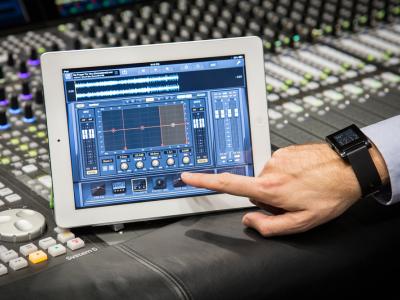What does a Radio DJ do?
Once upon a time, radio DJs were influential tastemakers in the music industry who chose all of the music for their own shows and could break an act into the mainstream with a few spins of the turntable. Today, however, most commercial radio stations use music playlists, which are selected by the music director or program director and tend to be heavily based on market research rather than personal taste.
As a result, the role of the commercial DJ has shifted away from music curation and toward hosting themed segments of storytelling, music discussion, current events, journalism, and more. The exception is college and independent radio DJs, who are likely to curate all of the music in their segments.
Because the work is broadcast live, terrestrial radio DJs need to be able to think on their toes, remain calm under pressure, and multitask.
In broadcast radio, a typical workday often begins a couple of hours before going on the air with show preparation at the station: checking the charts, news, and social media to see what's trending; recording commercials and on-air promotions; and scheduling music and talking points. Shift lengths vary, but DJs are often on air for three to five hours, during which time songs are interspersed with weather reports, listener requests, contests, on-air promotions for concerts and events, and radio banter. More production work often takes place after the shift ends. Satellite and internet radio DJs, without a local audience to engage, focus almost exclusively on music and talk.
At a Glance
There are no specific educational requirements to become a radio DJ, although a station might look for a DJ with a particular degree in order to round out their roster. Most DJs start off volunteering at a college or independent radio station before landing a paid job at a commercial one. In this career, success can mean shifting from part-time to full-time, changing from a late-night shift to the more popular drive-time shift, or—eventually—becoming a music director or program director. Some radio DJs go on to fame and fortune as on-air personalities, while others transition into careers in television.
Radio DJs are employed by broadcast, satellite, and internet radio stations. Aspiring radio DJs can get their first credits and exposure to the industry by volunteering at a college or independent radio station, interning at a major radio station, or producing and distributing their own podcast.
- Broad musical knowledge
- Basic understanding of recording equipment
- Basic understanding of broadcasting
- Public speaking
- Up to date with the latest news, trends, and viral content
- Verbal communication
- Multitasking
DJs are known for their rich, spellbinding voices and charismatic personalities. Certainly, being outgoing, quick-witted, and talkative is key for a DJ, and a good sense of humor also goes a long way. However, because the work is broadcast live, it's perhaps even more important that terrestrial radio DJs are able to think on their toes, remain calm under pressure, and do two or three things at once. Whether it's new information coming in during a segment or something going catastrophically wrong in the studio, DJs must keep their cool, maintain their on-air personality, and continue talking.
Terrestrial radio DJs organize their workdays and their lives around their shift times. For example, DJs working the morning drive time must wake quite early and are already finished up by the early afternoon, while DJs holding down the overnight shift will need to become partially nocturnal. In comparison, satellite and internet DJs have much more flexibility about when (and perhaps even where) they work.
For music-oriented DJs, it's common to attend a number of concerts and music industry events in the evenings as a representative of the radio station.









